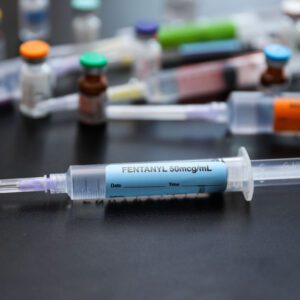Waypoint Recovery Center understands the reality of addiction for couples in South Carolina. When individuals seek out residential treatment for substance abuse in Cameron, they often have spouses supporting their return to sobriety. That’s why we always encourage couples to take advantage of our family services. They’re designed to provide you and your loved one tools for successfully moving forward through therapy, education, and recovery management.
How To Know If Your Spouse Struggles With Addiction
Drug abuse and alcoholism impact families and compromise marriages every day. In fact, addiction is one of the leading causes of divorce in the United States. How can you tell if your spouse’s drinking or drug use has spiraled into an addiction? Addiction is unique for every person, but you will probably notice the following signs:
- You notice that your spouse intermittently or mysteriously becomes introverted, sad, ill, sweaty, shaky, feverish, confused, fatigued, or nauseous
- Your loved one is sleeping much more lately—or begins to sleep much less—than you know is natural for them
- They see multiple doctors to prescribe medications and/or have multiple prescriptions they refill
- Your spouse’s physical appearance is changing (red or bloodshot eyes, smelly breath, weight gain or weight loss) or they may be suffering from tremors, seizures, shakiness, or bloody noses
- Their friend group has changed, or longtime friends no longer seem to be in the picture
- You catch them in lies, see them hiding objects or money, or notice that valuable items or money are missing from the home
Perhaps the most glaring signal that your spouse is abusing substances is a change in their personality. They may start to react and behave differently, in ways that push you away. It’s also common for people battling addiction to experience sexual dysfunction, which can place added strain on marriages. In general, if something habitually feels off with your spouse or you’re questioning the quality of their mental health, it’s time to seek help.
Substance Abuse and Domestic Violence
Apart from the drug and alcohol abuse indicators mentioned earlier, it’s important to understand how substance abuse, particularly alcohol misuse, plays a role in domestic violence. Abusing alcohol can often cause violence and physical trauma in relationships.
Sadly, up to half of men with SUD and alcoholism commit domestic violence, and alcohol is the root cause of many child abuse cases across the nation. Women and wives can also perpetrate violence against their partners and children when under the influence of drugs or alcohol. Seeing your spouse become violent with you or others while drinking or using drugs is a clear sign of SUD.
How To Support a Spouse With SUD
The most important step to take is prioritizing your well-being. Take the time to rebuild your sense of safety and control. That may look like attending our family orientation group meetings while your spouse is in residency or exploring programs that our North Charleston outpatient facility provides.
You can also consider doing the following to help support your partner’s sobriety or substance reduction efforts:
- Removing all substances from shared living spaces and/or quitting substances as well—at least in the presence of your spouse
- Educating yourself about SUD and how it affects your daily life
- Seeking therapy and support in your community to lean on as you undergo changes and learn new habits
- Destigmatizing addiction, thinking of it as a mental health disorder rather than the result of a personal failure or mistake
- Working with your partner to establish new recovery boundaries
- Practicing relapse prevention techniques that can help your spouse manage stress as they return to daily life
As you continue to create boundaries, and if you choose to support your spouse through recovery, know that you cannot change your partner and you are not responsible for doing so. You can communicate your concerns and offer to help your partner get into treatment, but their recovery will depend on their own willingness to commit to the work. Waypoint can help both you and your loved one in this process. Contact us to learn more.





